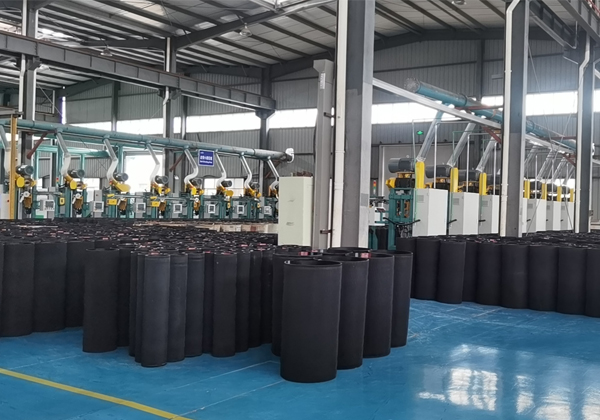- Arabic
- French
- Russian
- Spanish
- Portuguese
- Turkish
- Armenian
- English
- Albanian
- Amharic
- Azerbaijani
- Basque
- Belarusian
- Bengali
- Bosnian
- Bulgarian
- Catalan
- Cebuano
- Corsican
- Croatian
- Czech
- Danish
- Dutch
- Afrikaans
- Esperanto
- Estonian
- Finnish
- Frisian
- Galician
- Georgian
- German
- Greek
- Gujarati
- Haitian Creole
- hausa
- hawaiian
- Hebrew
- Hindi
- Miao
- Hungarian
- Icelandic
- igbo
- Indonesian
- irish
- Italian
- Japanese
- Javanese
- Kannada
- kazakh
- Khmer
- Rwandese
- Korean
- Kurdish
- Kyrgyz
- Lao
- Latin
- Latvian
- Lithuanian
- Luxembourgish
- Macedonian
- Malgashi
- Malay
- Malayalam
- Maltese
- Maori
- Marathi
- Mongolian
- Myanmar
- Nepali
- Norwegian
- Norwegian
- Occitan
- Pashto
- Persian
- Polish
- Punjabi
- Romanian
- Samoan
- Scottish Gaelic
- Serbian
- Sesotho
- Shona
- Sindhi
- Sinhala
- Slovak
- Slovenian
- Somali
- Sundanese
- Swahili
- Swedish
- Tagalog
- Tajik
- Tamil
- Tatar
- Telugu
- Thai
- Turkmen
- Ukrainian
- Urdu
- Uighur
- Uzbek
- Vietnamese
- Welsh
- Bantu
- Yiddish
- Yoruba
- Zulu
Dec . 06, 2024 06:41 Back to list
Choosing the Right V-Belt for Your Washing Machine Maintenance Needs
Understanding V-Belts for Washing Machines
In the realm of household appliances, washing machines play a pivotal role in easing the burden of laundry chores. One vital component that ensures the smooth operation of these machines is the V-belt. This article delves into what V-belts are, their importance in washing machines, how to identify a bad V-belt, and the steps for replacement.
What is a V-Belt?
The V-belt is a type of drive belt that is typically shaped like a trapezoid, with its cross-section resembling the letter V. This unique shape allows it to maintain a secure grip on pulleys, providing excellent friction and minimizing slippage. V-belts are commonly used in various applications, including automotive engines, lawnmowers, and yes, washing machines. In washing machines, V-belts connect the motor to the drum, translating motor power into the motion needed to rotate the drum for washing clothes.
The Importance of V-Belts in Washing Machines
In a washing machine, the V-belt serves several essential functions
1. Power Transmission The primary role of the V-belt is to transmit power from the motor to the washing machine drum. This process is crucial for the spinning and agitating functions that ensure effective cleaning.
2. Efficiency A properly functioning V-belt enhances the overall efficiency of the washing machine by ensuring that energy is transmitted effectively. A worn-out belt can cause the machine to work harder, leading to increased energy consumption.
3. Noise Reduction A functioning V-belt dampens vibration and noise that can occur during the operation of the washing machine. A degraded belt may lead to increased noise levels, which could be bothersome during operation.
Identifying a Bad V-Belt
Understanding the signs of a bad V-belt can save you time and money in the long run. Here are some symptoms to watch for
2. Slipping or Stalling If the drum fails to spin or agitate properly, it might indicate that the V-belt is slipping off the pulleys or has become too loose.
v belt for washing machine

3. Visible Wear and Tear Inspect the V-belt for cracks, fraying, or glazing. If you notice any damage on the belt, it’s time for a replacement.
4. Burning Smell A burning rubber smell can indicate that the V-belt is overheating due to excessive friction caused by wear or misalignment.
Replacing a V-Belt in a Washing Machine
If you ascertain that your washing machine’s V-belt is indeed the culprit, replacing it is a manageable task that you can often do yourself. Here’s a step-by-step guide
1. Unplug the Washing Machine Safety is paramount. Always disconnect the appliance from the power source before starting any repairs.
2. Access the Belt Remove the back panel of the washing machine. This may involve unscrewing several bolts—make sure to keep them in a safe place.
3. Remove the Old Belt Carefully slide off the old V-belt from the motor pulley and drum pulley. Take note of how it is positioned, as this will help you install the new belt correctly.
4. Install the New V-Belt Position the new V-belt around the motor and drum pulleys, ensuring it is seated correctly.
5. Reassemble Replace the back panel and secure it with screws.
6. Test the Machine Plug the washing machine back in and run a short cycle to ensure everything functions smoothly.
Conclusion
The V-belt may be a small component, but it plays a significant role in the functionality of washing machines. Recognizing the importance of the V-belt, being aware of symptoms of wear, and knowing how to replace it can prolong the life of your washing machine and enhance its performance. Regular maintenance and timely replacements can keep your laundry tasks effortless and efficient.
-
Korean Auto Parts Timing Belt 24312-37500 For Hyundai/Kia
NewsMar.07,2025
-
7PK2300 90916-T2024 RIBBED BELT POLY V BELT PK BELT
NewsMar.07,2025
-
Chinese Auto Belt Factory 310-2M-22 For BMW/Mercedes-Benz
NewsMar.07,2025
-
Chinese Auto Belt Factory 310-2M-22 For BMW/Mercedes-Benz
NewsMar.07,2025
-
90916-02660 PK Belt 6PK1680 For Toyota
NewsMar.07,2025
-
drive belt serpentine belt
NewsMar.07,2025

